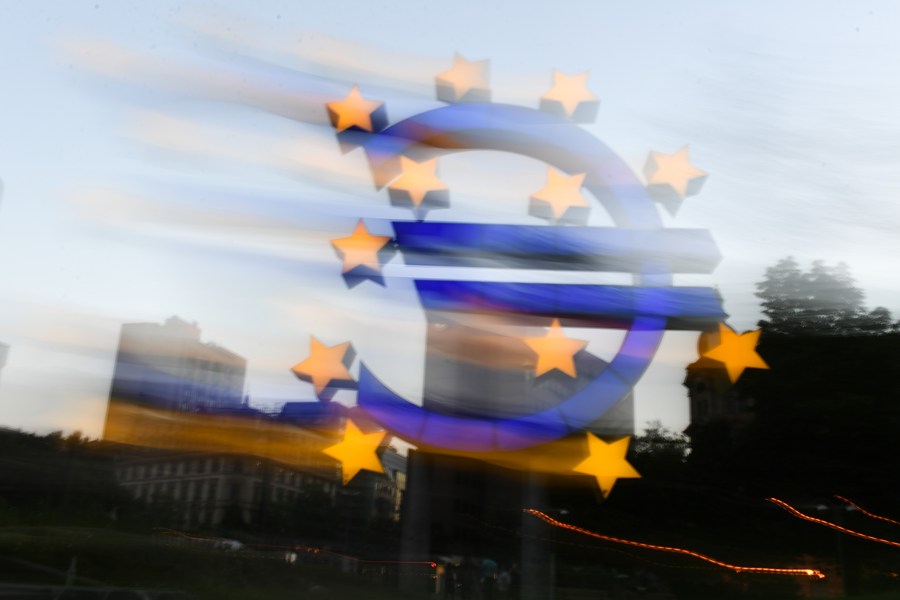Eurozone recession 'looking inevitable'
By CHEN WEIHUA in Brussels | China Daily | Updated: 2022-10-26 10:30

More international financial institutions have sounded alarm over the imminent economic recession facing the 19-member eurozone.
S&P Global Market Intelligence said in a report on Monday that the eurozone economy had slipped into a steeper downturn at the start of the fourth quarter, the rate of decline being the fastest since April 2013 except for pandemic lockdowns.
Manufacturing sectors, and in particular energy-intensive sectors, saw the greatest output loss, but services activity also continued to fall at an accelerated rate amid the ongoing cost-of-living crisis and broad-based economic uncertainty, the report said.
Germany witnessed the steepest economic contraction while growth in France merely stalled.
Chris Williamson, chief business economist at S&P Global Market Intelligence, said although supply shortages showed further signs of easing, inflationary pressures remained high amid hefty energy costs and upward wage pressures.
He said that business confidence in the year ahead "remained mired" at one of the lowest levels seen over the past two years.
"The eurozone economy looks set to contract in the fourth quarter given the steeping loss of output and deteriorated demand … adding to speculation that a recession is looking increasingly inevitable," he said.
The purchasing managers' index, or PMI, of the eurozone fell to 47.1 from 48.1 in September, while Germany's PMI declined from 45.7 to 44.1. A PMI reading under 50 represents a contraction.
High inflation
Inflation in the eurozone hit 9.9 percent in September, in sharp contrast to the 2 percent target set by the European Central Bank. The inflation seen by the 27-member European Union last month was even higher, at 10.9 percent.
In its latest World Economic Outlook this month, the International Monetary Fund predicted that key European economies, including Germany and Italy, will next year fall into a "technical recession", meaning two consecutive quarters of negative growth of real GDP.
The German Ministry of Economic Affairs and Climate Action this month marked down its forecasts for 2022 and 2023. It now expects the German economy to grow 1.4 percent this year and to contract by 0.4 percent next year, down from its April forecast of 2.2 and 2.5 percent respectively.
The ECB's governing council, which raised its key interest rates by an unprecedented 75 basis points last month, is expected to hike the rate again on Thursday in a bid to cool inflation.
Rising living costs, high energy prices and fears about energy shortages this winter have sparked protests in many European cities.
Hosuk Lee-Makiyama, director of the Brussels-based European Center for International Political Economy, said that with half of its GDP derived from exports, Germany is one of the most export-dependent economies in the world.
Lai Suetyi, an associate professor in the Center for European Studies at the Guangdong University of Foreign Studies, said the question now is not whether Germany is sliding into a recession, but how long will it last and can the German government pull the country out of it.
She said that it is energy-dependent industries that suffer the most, but it is spreading to their customers and suppliers and eventually to the whole economy, as well as to the EU. "After seeing them survive so many crises, I would not be too pessimistic," Lai said.
chenweihua@chinadaily.com.cn
























